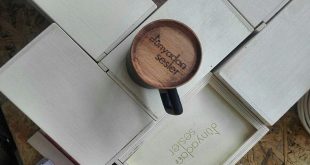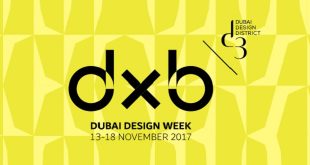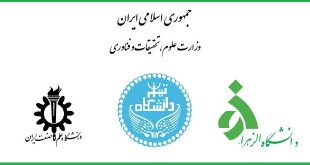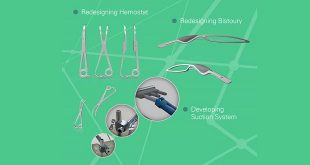گروه طراحی صنعتی دانشگاه هنر اصفهان از تاریخ ۲۶ آذر لغایت ۲۹ آذر، گارگاهی آموزشی با عنوان “souvenirs from the futures” برگزار می نماید. این کارگاه ۴ روزه با حضور جناب آقای Paolo Cardini دانشیار دانشگاه Rhode Island School of Design در دانشکده معماری و شهرسازی برگزار خواهد شد.
Paolo Cardini علاوه بر تدریس در دانشگاه، فعالیت هایی نظیر طراحی و مشاوره برای شرکت های مختلف بین المللی، سخرانی در TED و کنفرانس ها و مدارس طراحی در کشورهای مختلف را در کارنامه خود دارند.
بنا به گفته سعید علیاری، مدیر گروه طراحی صنعتی دانشگاه هنر اصفهان، سخنرانی صبح روز اول (جمعه ۲۶ آذر) برای عموم دانشجویان طراحی صنعتی آزاد است ولی در ادامه، کارگاه عملی محدود به ۱۵ نفر ثبت نام شده خواهد بود. البته قبل از شروع کارگاه و در روز ۲۵ آذر نیز برنامۀ بازدید جناب Cardini به همراهی دانشجویان از هنرهای بومی و صنایع دستی اصفهان در برنامه دیده شده است.
گزارش این رویداد از طریق همین سایت پس از برگزاری،منتشر خواهد شد.
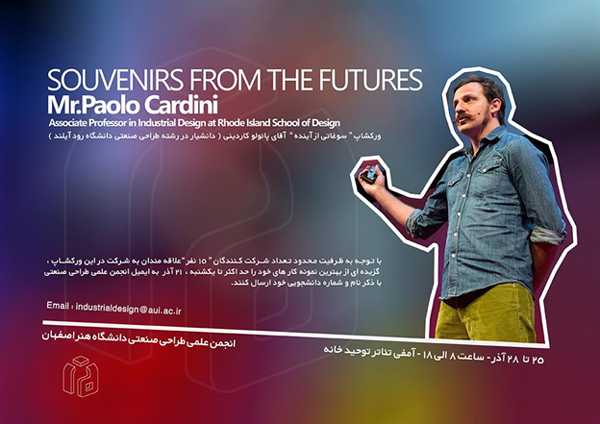
Paolo Cardini is an Associate Professor of Industrial Design at RISD. His particular emphasis within the broader field of design is “Speculative” or “Discursive” design, which the designers and theorists Stephanie and Bruce Tharp define as a category of product design that treats artifacts principally as transmitters of substantive ideas, rather than as mere instruments of utility. The primary intent of the discursive designer then is to encourage users’ reflections upon, or engagements with, a particular discourse; the goal is to affect the intellect. Moving beyond traditional styling or commercial problem solving, discursive design embraces a more expansive
role for the designer: engaged citizen, sociocultural critic, educator, and provocateur.
Prof. Cardini teaches Discursive Design to RISD Industrial Design students. In particular, he does
so through his courses “Design for Utopias and Dystopias” and “Design Futures.” In both, Cardini fosters a deep critical analysis about our present society and he pushes students to imagine the future as a direct consequence of our present choices. Being at RISD, a School committed to critical inquiry around the intersections of globalization and art & design and where many students are from countries outside of the so-called “west”, Cardini immediately felt the urge to reset his general idea of future and reset his assumptions about the meaning of social critique. Through student projects, he soon realized that what appeared to be a dystopian reality for some was in reality a mere representation of the present for others.
As such, Cardini understood that the field of Discursive/Speculative Design practice continues to operate within a white-western perspective and context. The Global Futures Lab seeks to disrupt this model and to craft a more pluralistic and inclusive debate about the future by engaging in a global discourse with participants in specific geographic locations across the world to share dreams, fears and doubts across and among cultures.
For the Lab, Cardini will collaborate with institutions (non-profit art spaces, academic institutions, and other spaces) to create on-site workshops to explore this concept about discursive design within each local context. During each workshop participants will be asked to build objects, “souvenirs from the futures”, able to illustrate what the future would be in their own reality as consequence of, or in response to, their socio-political-economical present condition. The workshops will be based on Speculative Design, Speculative Ethnography and Design Fiction theories and the goal will be to produce physical artifacts, developed by the students themselves or in collaboration with local artisans.
The ultimate goal for the project is to create a mobile exhibition bringing together the discourses and objects that map souvenirs for diverse global futures.
Overarching Frame: RISD Global Engagement
RISD’s Global Office is a hub for discourse and cross-cultural exchange that supports students, faculty and members of the RISD community on campus and in the world. It is committed to developing and sustaining opportunities, programs and networks that address the challenges, meanings, and significance of art and design in a global context, and inspiring creative agents for a changing world.
Within this context at RISD, the Global Faculty Fellowship program advances RISD Global’s goal
of addressing the challenges, meanings and importance of art and design in a global context and invites the selected faculty member to respond to this during the fellowship period. Core to this goal is the fellow’s collaboration with peers, colleagues, students and organizations across the world that are pertinent to the focus on their work and the future of their disciplines more broadly. As such, RISD is taking seriously its mission to educate artists, designers and future leaders to “make lasting contributions to a global society through critical thinking, scholarships and innovation.”
In Academic Year 2016-2017, Professor Paolo Cardini will serve as the Global Faculty Fellow, during this period the fellowship –under Prof. Cardini’s leadership– will take on the questions of
futures through a decentered approach that seeks to challenge the more typical western perspectives on this topic and to instead imagine futures collaboratively within very particular socio-geo-artistic contexts including: Isfahan, Iran, Lima, Peru, and Addis Ababa, Ethiopia and China. In doing so, Cardini will collaborate locally in each context to also craft a bridge between local traditions of making and designs for global futures.
As such, through this fellowship, RISD is honored to be collaborating with leading art and design schools in these areas to imagine and design together possible futures.
Process
“Design fiction is the deliberate use of diegetic prototypes to suspend disbelief about change” (Bruce Sterling). Starting from this definition we can simplify the idea behind this project as “the creation of everyday objects, set in the future or in alternative realities, able to suggest what it will look like to live in a specific future linked to a particular geo-cultural context. This series of workshops will craft alternatives to the dominant, western stereotypes of futures in relation to Utopian scenarios and Science Fiction. Students will have the opportunity to reflect upon their own environments, their traditions and beliefs and to envision a future respectful of their cultural needs and coherent with their own idea of tomorrow’s life. In opposition to a diffuse technological determinism, where society seems shaped by new technologies, the Global Future Lab wants to endorse a sort of “cultural determinism” in which any idea of future should be double-chained with localized visions and debates about plural futures.
The process will be based on the creation of future scenarios, utopian or dystopian, in which the students will envision tomorrow’s everyday life. They will produce narratives and stories about that future and that will evoke how people will live and interact. They will look at objects and artifacts that future peoples will use; quotidian objects that would go unnoticed in future lives but for us, in the present, will result as concrete representation of new habits and new behaviors. Those objects will play the role of diegetic prototypes, suggesting a certain idea of future that society can contribute to achieve (if desirable) or prevent (if unwanted).
Outcomes
The outcome of the entire initiative will be a series of objects able to represent unique and genuine ideas of future true to the different locations and cultures involved in the project. With the proper flexibility and case-by-case considerations, the outcomes should respect the following requirements:
– The artifacts should represent everyday objects used in the future realities envisioned during the workshop.
– Although there is no limit to the number of artifacts that can be produced, given the short time available, it is highly recommended that students concentrate on one to three pieces.
– The objects created must be limited in size and not exceed (all together) the 1x1x1mt dimension (this is to reduce the shipping cost and make the entire operation easy to handle and manage).
– Ideally, but not exclusively, objects should be realized with materials and techniques typical for the place where the workshop is held.
Follow up
Professor Cardini, RISD Global and the RISD community at large are working at the moment to envision different possible follow up to this project. The potential paths analyzed so far includes:
• A Publication in which the different workshops experiences will be enriched by contributions from the participants (but not only) in form of essays and articles.
• An Exhibition, that could take place initially at the RISD Campus but later travel to each location involved in the project.
• A Symposium, to be held at RISD, to address the topic of Global Futures where representative of the partner Organizations will be invited (together with other guest speakers) to express their thoughts and share their perspectives.
Workshop development
The workshop will take place over four full-days. During the workshop the students will work on creating future scenarios and product ideas and prototypes to be later realized by either local technicians (the people) or techniques (the methods). After the workshop, the students, with the supervision of the local faculty involved in the project, will be responsible for managing the relations with the local artisans and the full production of the artifact.
DAY1
Morning
Introduction and group discussion about future scenarios, utopias and dystopias. Professor Cardini will give a lecture for students on: Design fictions, Speculative Design and Speculative Ethnography. Professor Cardini’s introductory lecture could be open to the public if/as of interest to a broader community and/or public.
Afternoon
Students will be divided in groups (3-4 teams) and each team will develop a different future scenario. Goal of this first exercise will be the creation of a story-board illustrating a moment in someone’s future everyday life.
DAY2
Morning
Each group will present its scenario and all the participants will be invited to contribute to the critique and expand the ideas presented.
Afternoon
The focus will be shifted on the creation of products and artifacts that will fit those scenarios, everyday objects that will suggest us what our life will look like in those speculative realities.
DAY3
Morning
Realization of sketch prototypes of the first product ideas using basic materials like paper cardboard, foam or whatever material is available for the students to express their proposals three-dimensionally.
Afternoon
Visit to local crafting communities or places identified as relevant for the development of the project.
DAY4
Morning
Students will finalize their proposals; complete the prototypes and plan the next step of the production phase.
Afternoon
Final presentation.
Local Craft
This project will require from the partner institutions to provide a link with local artisans or craft communities able to produce the students’ ideas. The involvement of external craft professionals, in charge of the production phase, will ensure a higher quality of the final outcomes and will allow the students to focus on ideas and concepts. Moreover, traditional materials and manufacturing techniques are an integral part of the entire operation and they will function as a joint between future speculations and present realities. During the workshop, the students will get in contact with the artisans, understanding the possibilities related to a certain technic/material and the feasibility of their proposals. Only after the end of the workshop, the artisans will come into play transforming the students’ ideas into real artifacts.
 بانک مقالات اخبار و رویدادهای طراحی صنعتی طراحی صنعتی ایرانی
بانک مقالات اخبار و رویدادهای طراحی صنعتی طراحی صنعتی ایرانی


